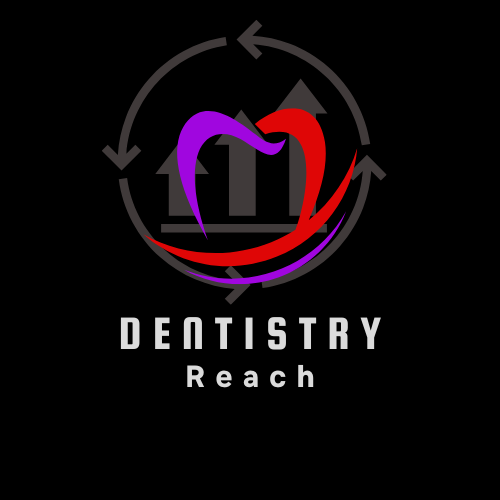Tooth Loss & Replacement – Learn About Dentures, Implants, and Bridges
Introduction
Tooth loss is a common dental issue that affects millions of people worldwide. It can result from various factors, including tooth decay, gum disease, injury, or aging. Missing teeth can impact a person’s ability to chew, speak, and smile confidently. Fortunately, modern dentistry offers several tooth replacement options, including dentures, dental implants, and bridges, to restore function and aesthetics.
This comprehensive guide explores the causes of tooth loss, its effects, and the available treatment options to help individuals make informed decisions about their oral health.
Causes of Tooth Loss
Several factors contribute to tooth loss, including:
1. Gum Disease (Periodontitis)
-
One of the leading causes of tooth loss.
-
Bacterial infection damages the gums and supporting bone structure, leading to tooth loosening and eventual loss.
2. Tooth Decay (Cavities)
-
Severe untreated cavities can destroy a tooth beyond repair, requiring extraction.
3. Trauma & Injury
-
Accidents, falls, or sports-related injuries can lead to tooth fractures or complete loss.
4. Poor Oral Hygiene
-
Neglecting oral care results in plaque buildup, infections, and eventual tooth loss.
5. Medical Conditions & Medications
-
Diabetes, osteoporosis, and certain medications can weaken bones and gums, increasing the risk of tooth loss.
6. Genetic Factors
-
Some individuals may have weaker teeth or bone structures due to hereditary factors.
7. Smoking & Tobacco Use
-
Smoking restricts blood flow to the gums, leading to infections and tooth loss.
Effects of Tooth Loss
Tooth loss can impact oral and overall health in several ways:
1. Difficulty in Chewing & Digestion
-
Missing teeth make it harder to chew food properly, affecting digestion and nutrition.
2. Speech Impairment
-
Teeth play a crucial role in articulation; missing teeth can cause speech difficulties.
3. Bone Loss (Jaw Resorption)
-
Without teeth, the jawbone deteriorates over time, altering facial structure.
4. Shifting of Remaining Teeth
-
Gaps from missing teeth cause adjacent teeth to shift, leading to bite problems.
5. Reduced Self-Confidence
-
Missing teeth affect a person’s smile, leading to self-consciousness and reduced confidence.
6. Increased Risk of Further Tooth Loss
-
Losing one tooth increases pressure on remaining teeth, leading to additional tooth loss over time.
Tooth Replacement Options
There are several ways to replace missing teeth, each with its benefits and considerations.
1. Dentures
Dentures are removable prosthetic devices designed to replace missing teeth.
Types of Dentures:
-
Complete Dentures: Used when all teeth are missing.
-
Partial Dentures: Used when some natural teeth remain.
-
Implant-Supported Dentures: More stable dentures anchored by dental implants.
Pros of Dentures:
✔ Affordable compared to implants.
✔ Non-invasive and suitable for most patients.
✔ Can restore function and aesthetics.
Cons of Dentures:
✖ May feel uncomfortable at first.
✖ Require regular maintenance and adjustments.
✖ Do not prevent jawbone loss.
2. Dental Implants
Dental implants are permanent tooth replacements surgically placed in the jawbone.
How Implants Work:
1. A titanium post is inserted into the jawbone.
2. The bone heals around the implant (osseointegration).
3. A crown is attached to the implant, restoring function and appearance.
Pros of Implants:
✔ Most natural-looking and functional replacement.
✔ Prevents bone loss and preserves facial structure.
✔ Long-lasting (can last a lifetime with proper care).
✔ Does not affect adjacent teeth.
Cons of Implants:
✖ Higher cost compared to other options.
✖ Requires surgery and healing time.
✖ Not suitable for everyone (e.g., people with severe bone loss may require bone grafting).
3. Dental Bridges
A dental bridge replaces one or more missing teeth by anchoring artificial teeth to adjacent natural teeth or implants.
Types of Bridges:
-
Traditional Bridge: Uses crowns on adjacent teeth for support.
-
Cantilever Bridge: Supported on only one side.
-
Maryland Bridge: Bonded using a metal or porcelain framework.
-
Implant-Supported Bridge: Anchored to dental implants instead of natural teeth.
Pros of Bridges:
✔ More stable than dentures.
✔ Faster and less invasive than implants.
✔ Restores chewing function and aesthetics.
Cons of Bridges:
✖ Requires modification of adjacent healthy teeth.
✖ May need replacement after 10-15 years.
✖ Does not prevent bone loss.
Comparing Tooth Replacement Options
| Feature | Dentures | Dental Implants | Dental Bridges |
|---|---|---|---|
| Durability | 5-7 years | 20+ years | 10-15 years |
| Stability | Less stable | Most stable | Moderately stable |
| Bone Preservation | No | Yes | No |
| Cost | Affordable | Expensive | Moderate |
| Procedure Time | Quick | Long (requires healing) | Moderate |
| Comfort | Can feel bulky | Feels natural | Feels natural |
Caring for Your Tooth Replacement
Proper care extends the lifespan of tooth replacements:
1. For Dentures
-
Clean daily with a denture cleaner.
-
Remove at night to allow gums to rest.
-
Avoid using hot water, which can warp dentures.
2. For Dental Implants
-
Brush and floss daily like natural teeth.
-
Regular dental checkups to ensure implant health.
-
Avoid smoking, which can lead to implant failure.
3. For Bridges
-
Brush and floss daily, especially under the bridge.
-
Use an interdental brush or floss threader.
-
Regular dental visits for professional cleanings.
Conclusion
Tooth loss can impact both function and aesthetics, but modern dentistry provides several effective replacement options. Whether you choose dentures, dental implants, or bridges, consulting a dentist will help determine the best solution based on your needs, budget, and oral health condition.
Frequently Asked Questions (FAQs)
Q1: Which tooth replacement option is the best?
A: Dental implants are considered the best option due to their durability and bone-preserving benefits, but dentures and bridges are viable alternatives depending on individual needs.
Q2: Can I eat normally with dentures or implants?
A: Yes, but dentures may take time to adjust to, while implants function like natural teeth.
Q3: How long do dental implants last?
A: With proper care, dental implants can last a lifetime.
Q4: Are bridges better than dentures?
A: Bridges are more stable than removable dentures but require modifying adjacent teeth. Implants are a better long-term solution.
Q5: Can I get implants if I have bone loss?
A: Yes, but you may need a bone graft before implant placement.
By exploring all available options and consulting with a dentist, you can restore your smile and improve your oral health effectively!





